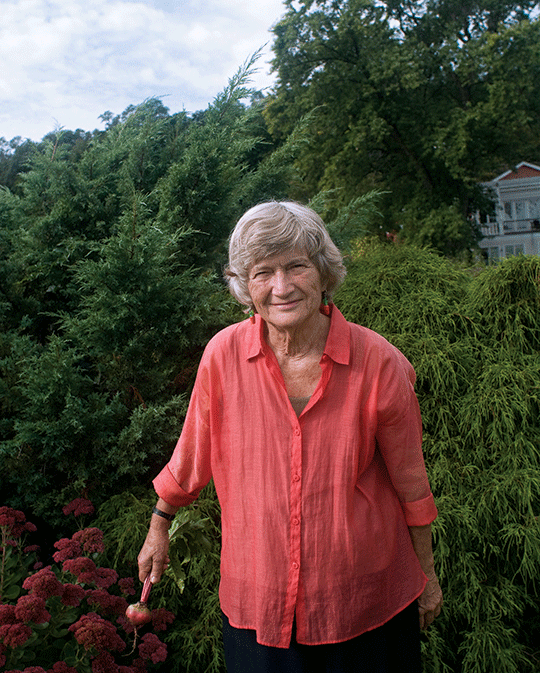Society for Nutrition Education and Behavior Honors Professor Emerita Joan Gussow

Gussow, who will celebrate her 90th birthday in 2018, has been described by The New York Times as “the matriarch of the eat-locally think-globally food movement.” The Ullrich Award recognizes her array of contributions in research, teaching, advocacy and public service – including reaching thousands of students, most notably through her legendary course “Nutritional Ecology,” and serving on national committees that shaped dietary guidelines, standards for organic labeling and guidelines for genetically altered products.
Yet perhaps Gussow’s greatest contribution has been her long-standing contention that nutrition education is about food, not nutrients.
“The term ‘nutrition education’ was thought of primarily in didactic terms, as a means to provide accurate science information to the public. As a career changer and mother, Joan entered the field with fresh eyes. She has written and spoken extensively about the fact that nutrition education needs to focus on food and eating patterns.” — Isobel Contento
“The term ‘nutrition education’ was thought of primarily in didactic terms, as a means to provide accurate science information to the public and also to correct misinformation,” wrote Isobel Contento, TC’s current Mary Swartz Rose Professor, in her nomination of Gussow. “As a career changer and mother, Joan entered the field with fresh eyes. She has written and spoken extensively about the fact that nutrition education needs to focus on food and eating patterns.”
Gussow has repeatedly drawn attention to the “many forces in society that contribute to unhealthy eating patterns,” Contento wrote, arguing that “these influences needed to be acknowledged and addressed as part of nutrition education: from poverty, to agricultural practices, to government policy, to media advertising, to food industry practices.” This “social ecological model” is now “the accepted framework worldwide.”
Another nominator, Pamela Koch, Director of TC’s Laurie M. Tisch Center for Food, Education & Policy, added that Gussow has “stood up for nutrition education to teach people about food instead of about nutrients, which is disconnected from real life. Joan has transformed many careers and the entire field of nutrition education.”
In a 1988 article in the Journal of Nutrition Education (JNE), Gussow argued that “introducing the public to simple food preparation skills that will enable them to cook the foods we teach them to want to eat” would help people take charge of their own health. She was attacked by some as an anti-feminist, but today, Contento notes, “chefs who prepare healthy foods are celebrities.”
In 1972, also in JNE, Gussow published the highly influential article “Counter-nutritional Messages of TV Ads Aimed at Children,” subsequently testifying in Congress about the poor quality of foods advertised to children on television. (Her research showed that of 388 network commercials over the course of 29 hours on Saturday mornings, 82 percent were for food – most of it of dubious nutritional value.)
Gussow has long held that science and politics are inextricably intertwined, arguing that research agendas are framed by personal beliefs and allegiances. In 1980, during her own tenure as President of SNEB, she led a plenary session on dietary fiber, asking, in essence, whether commercial food companies should fortify processed products with fiber – a development that would undoubtedly increase prices – or, conversely, be urged to modify their processing methods so as to retain more natural fiber in foods.
Gussow staged a mock trial during the session, presided over by a real-life judge and argued by two practicing attorneys.
Yet Gussow has also been a bridge-builder between contending factions. Nearly 40 years ago, she wrote that “the recent squabbling among nutrition professionals over who should tell the public what is a disturbing outgrowth of our increasing inability or unwillingness to hear each other.” Warning that “we stop listening because new information disturbs our prejudices,” she called on her colleagues to “quit putting each other’s candles out.” – Joe Levine
Published Thursday, Aug 10, 2017